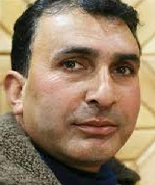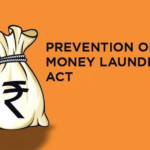Are we on the threshold of corruption -free climate? Is Anti-Corruption Bureau (ACB) of Jammu and Kashmir turning the tables on the corruption mafia — the mafia which has got its hooks here, there and everywhere, subverting the rule of law on impunity? For those not afflicted with myopic present, the good news is that the institution of ACB is on the move to round up the hydra headed enemy — rampant corruption. The institution is at daggers drawn with the corruption network, obviously giving the later sleepless nights.
In the wake of its remarkable success in unearthing a land scam recently in Jammu, the ACB has cracked the whip on five patwaris in the district by raiding at their offices. This valiant move is laudable given the specter of backlash looming large. Nevertheless, full marks to the ACB for coming as a silver lining in a situation where butchers of corruption world rule the roost; and in which slipping through the net has become their second nature.
To take the wind out of the sails of the deep seated and apparently immutable corruption network, the ACB should cast its net wide to devour the big fishes; also that action will hammer home to the vultures that kings have long hands. A big ask without doubt. It is paramount though before the point of no return runs the show.
Notably, corruption — in its multiple forms — feeds on the widespread acceptance of the menace. With neither any mass movement nor a narrative in sight aimed at stemming the tide, it underlines one big contributing factor for the mess to ride roughshod over the law apparatus — insensitivity. Which leaves broad hints of a gloomy outlook for our economy, social sectors and existence above all.
Earlier in the ongoing year, the ACB booked few officials, former Vice Chairman JDA for ‘ illegally approved IT Park construction’. This same Bureau on January 5 caught two government officials for demanding and accepting a bribe; later a scientist was reportedly caught red handed in indulging in the same act. These incidents indicate that the flames of corruption are refusing to vanish. The ACB deserves appreciation for bringing to book these public servants — read the public serpents. Outstanding work by the bureau. More needs to be done.
Punishing the corrupt hands and disciplining them towards playing a noble and clean handed role in their service to public, is a bounden duty of every government; but to demolish the wall of corruption, the key is to address its noticeable causes. Cause one is the greed of amassing wealth and property — at the expense of public good and public opinion. This mindset has dehumanized the looters, the corrupt elements.
Cause two is the pressing need chiefly by those lower rung officials whose monthly income falls short of their cost of living. Indeed, no justification can suffice to escape the rulebook for indulging in the wrong doing. However, these officials are known to fleece public under this and that excuse ostensibly in league with their superiors. When leaves do not function well, the roots and branches of a tree decay and die.
Notably, there is no quick- fix solution to eliminate the two causes of the reprehensible activities. Human greed and need can be contained through checks and regulations; channelizing them in the right direction is equally important.
Additionally, effective steps are imperative for bolstering up the financial position of the lower rung officials in line with the cost of living. Better salaries, subsidy provisions for house making, medical facilities, interest -free loans and so on. Measures like these can considerably reduce tendency to take to the illegal means of income. And regulating prices of commodities, austerity measures by higher officials, taxing the elite class and strict execution of the rule book — are a potent recipe to diminish the prospects of engaging in corrupt deeds.
Pertinently, it is in order to point out that the extortion of money and blackmailing — the two major forms of corruption though not JK specific — raise their ugly heads when conviction rate of the corrupt people falls. It never portends good for the man in street. Consequently, the wrongdoers enjoy a field day; it is however ironical that they receive a shot in the arm for floating the codal norms. Corruption and certain other shady practices recently have ended up in the cancellation of many selection processes; NEET is the example. This obviously has plunged the youth into the cesspool of stress, frustration and other mental health issues. Besides, it has exposed the depth of inhumanity which now exists in our society.
Worse, corruption environment has damaged the reputation of the institutions tasked to honour merit. Can we work with integrity to respect competence and ensure good mental health of the job seekers? We do have strict laws requiring officials to refrain from the illegal earnings; the situation that obtains is alarmingly disappointing though.
Notwithstanding strict instructions and repeated reminders from the government against the malpractices, the corrupt officials believe that it is their right to earn extra income in meeting the public needs. Speedy conviction could be a deadly deterrent. Power and status of the perpetrators aside; let us give merit a chance.
An unscrupulous official seems to have become soulless and heartless, preventing him/ her from feeling the pain which the illegal act inflicts upon the affected person through delaying tactics, excuses, arrogance, bribe- demand and indiscipline in doing duty. All that the official prioritizes is his/ her own comfort, benefit, dignity and family.
Corruption destroys economy. Corruption destroys public trust. Corruption destroys work ethics and work culture. It causes uncertainty and blocks developmental works. National Crime Records Bureau Data places J&K second in the corruption index and in the UT, 90 percent people accused of corruption are acquitted with no strong action taken against them.
According to the data by the J&K State Vigilance Organization, from 2013 to Dec 2016, about 172 cases of FIR were registered and 151 cases are still under investigation with no conclusion and cases are going at low speed and many are awaiting justice.
In About 95 percent cases, complaints were filed against low rank officials for their getting bribe of Rs 1000 to Rs 5000.Not a single case was filed against top ranking officials who have been corrupting the system .A big reason is power of the official or justice not done if the case is filed against him/her.
Although, various plans and programmes are launched to meet the needs and wants of the people, many of them do not achieve their intended aims. Plans and projects are often left incomplete or undone. In such a state of affairs, the values like justice, equality and the rule of law just remain lip service. Relevance they lose. Remarkably, civilized societies punish the selfish and abusers of others and reward those who serve, cooperate and help without seeking anything in return.
What is tragic is that children learn from the behavior of their elders that only the self matters. They grow up with the learning that they simply have to feather their own nests and fulfill their own interests with no regard for others’ interests and welfare. We see this negative attitude of the citizens in the wasting of resources, say, water, power and food. We see it on roads in the form of rash driving, rash parking and rash behavior.
The attitude gets reinforced when laws are not applied strictly, not observed properly or not used justly. To combat corruption, no government keeps a magic wand. The populace must rise to the occasion and play a supportive role: societal norms and values directly impact the corruption practices. Good citizens look for no rewards.
The pulpit, media and educational institutions can lead from the front now. Laws and regulations need to be applied strictly, properly and justly. If clean handed people are rewarded and corrupt people punished without bias, the scenario could reverse.
To conclude, let me repeat that addressing income inequalities and pay anomalies; ensuring fair distribution of national income and ensuring that no big fish slips through the wide anti-corruption net — all can potentially shake the foundations of the corrupt ecosystem. The ACB is gaining firmer ground; no looking back is a must.
(Author is RK columnist and teacher by profession. Feedback: [email protected])








